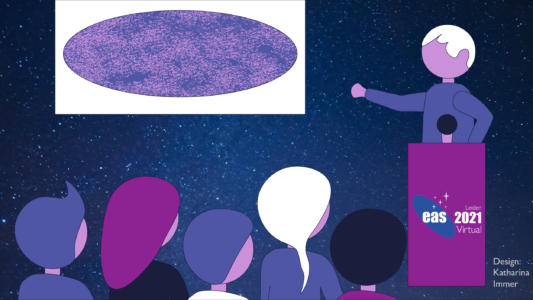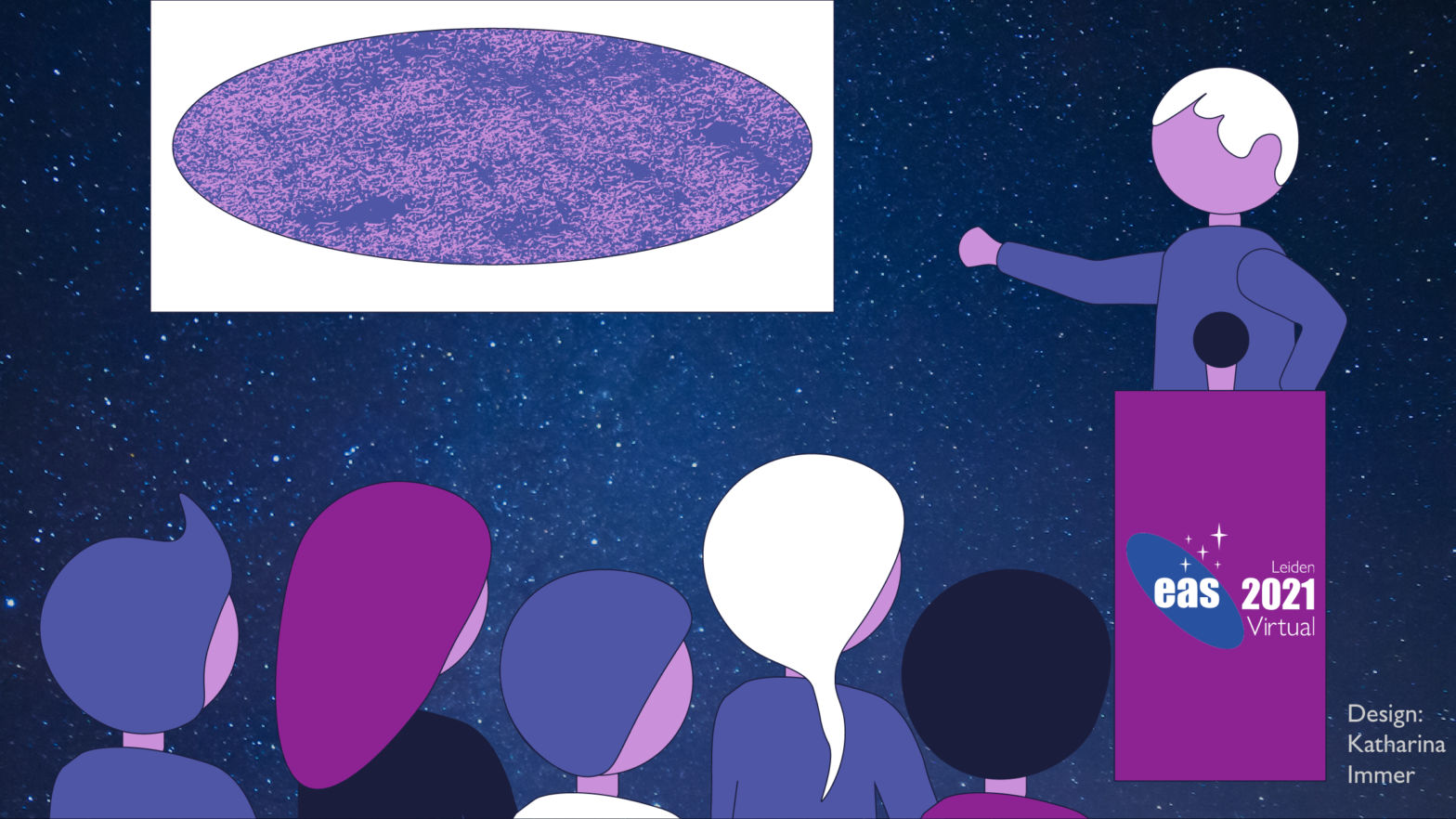P R E S S R E L E A S E
European Astronomical Society (EAS)
—————————————————————————————
21 June 2021
Biggest ever annual meeting of the European Astronomical Society (EAS) kicks off June 28th – Public talk by Lord Martin Rees, UK’s Astronomer Royal
The annual meeting of the European Astronomical Society will take place online for the second year in a row, from 28 June – 2 July 2021, hosted by Leiden University/Leiden Observatory in the Netherlands. Over 2250 participants have registered for the meeting, the highest number ever.
Due to the pandemic the EAS decided to move #EASLeiden2021 to a virtual meeting again. The conference is the annual professional astronomy and space science meeting of the European Astronomical Society (EAS). Leading researchers will present their latest work.
On the first day of the meeting, UK’s Astronomer Royal,Lord Martin Rees (University of Cambridge, United Kingdom), will receive the Fritz Zwicky Prize. He will give a public lecture, titled The World in 2050 and Beyond, on July 1st at 19h30 (CEST). The talk will be streamed via the YouTube channel of the EAS: https://www.youtube.com/channel/UCfpcwTCxro98CtfdE9nX4ew. The lecture is aimed at a large audience and accessible to everyone.

#EASLeiden2021 offers 16 Symposia, 33 Special Sessions and 5 Lunch Sessions. About 1000 talks have been accepted, and 1350 ePosters. In addition, there are 8 Plenary Talks, 3 Community Reports and 9 Prize Award Talks and Ceremonies.
The meeting covers a wide range of topics, from astrochemistry, exoplanets, stellar astrophysics, and gravitational waves, to data science, diversity & welfare, and development & outreach.
A full and up to date schedule of the scientific programme can be found on the official website https://eas.unige.ch/EAS2021/program.jsp.
—————————————————————————————————
Note to editors
Media representatives are cordially invited to attend the meeting and can register at no cost. For free media registration, please contact the press officer listed below.
Media contact
Marieke Baan
Press officer European Astronomical Society/#EASLeiden2021
E-mail: eas-press@kuoni-congress.info
Cell: +31 (0) 614322627
Scientific contact
Prof. dr. Lex Kaper, EAS Vice-President, Chair of the EAS Annual Meeting Board
E-mail: L.Kaper@uva.nl
EAS
An overview of the EAS organisers and the organising committees can be found here: https://eas.unige.ch/EAS2021/organizers.jsp
The European Astronomical Society (EAS) promotes and advances astronomy in Europe. As an independent body, the EAS is able to act on matters that need to be handled at a European level on behalf of the European astronomical community. In its endeavours the EAS collaborates with affiliated national astronomical societies and also with pan-European research organisations and networks. Founded in 1990, the EAS is a society of individual members. All astronomers may join the society, irrespective of their field of research, or their country of work or origin. In addition, corporations, publishers and non-profit organisations can become organizational members of the EAS. The EAS, together with one of its affiliated societies, organises the annual EAS meeting to enhance its links with national communities, to broaden connections between individual members and to promote European networks.
Follow #EASLeiden2021 on Twitter and Facebook
Public lecture
Public lecture Lord Martin Rees: ‘THE WORLD IN 2050 AND BEYOND’
Summary:
Our Earth has existed for 45 million centuries, but this is the first when one species – ours – has the planet’s future in its hands. Advances in biotechnology, robotics, and artificial intelligence – if pursued and applied wisely- could empower us to boost the developing and developed world and overcome the threats humanity faces. But we must avoid dystopian risks. These are of two kinds. First, those stemming from our ever-heavier collective ‘footprint’ on the Earth: the pressure of a growing and more demanding population threatens dangerous climate change, and biodiversity loss. Second, those triggered by technologies so powerful that even small groups, by error or design, can create a catastrophe that cascades globally. At the same time, further advances in space science will allow humans to explore the solar system and beyond with robots and AI-even seeking evidence for alien life. But there is no “Planet B” if we do not care for our home planet.
Short bio Lord Martin Rees:
Martin Rees is the UK’s Astronomer Royal. He is based at CambridgeUniversity where he is a Fellow (and Former Master) of Trinity College. He is a former President of the Royal Society and a member of many foreign academies. His research interests include space exploration, high energy astrophysics, and cosmology. He is co-founder of the Centre for the Study of Existential Risks at Cambridge University (CSER), and has served on many bodies connected with education, space research, arms control, and international collaboration in science. In addition to his research publications, he has written many general articles and articles and ten books, most recently ‘On the Future: Prospects for Humanity’.
—————————————————————————————————
